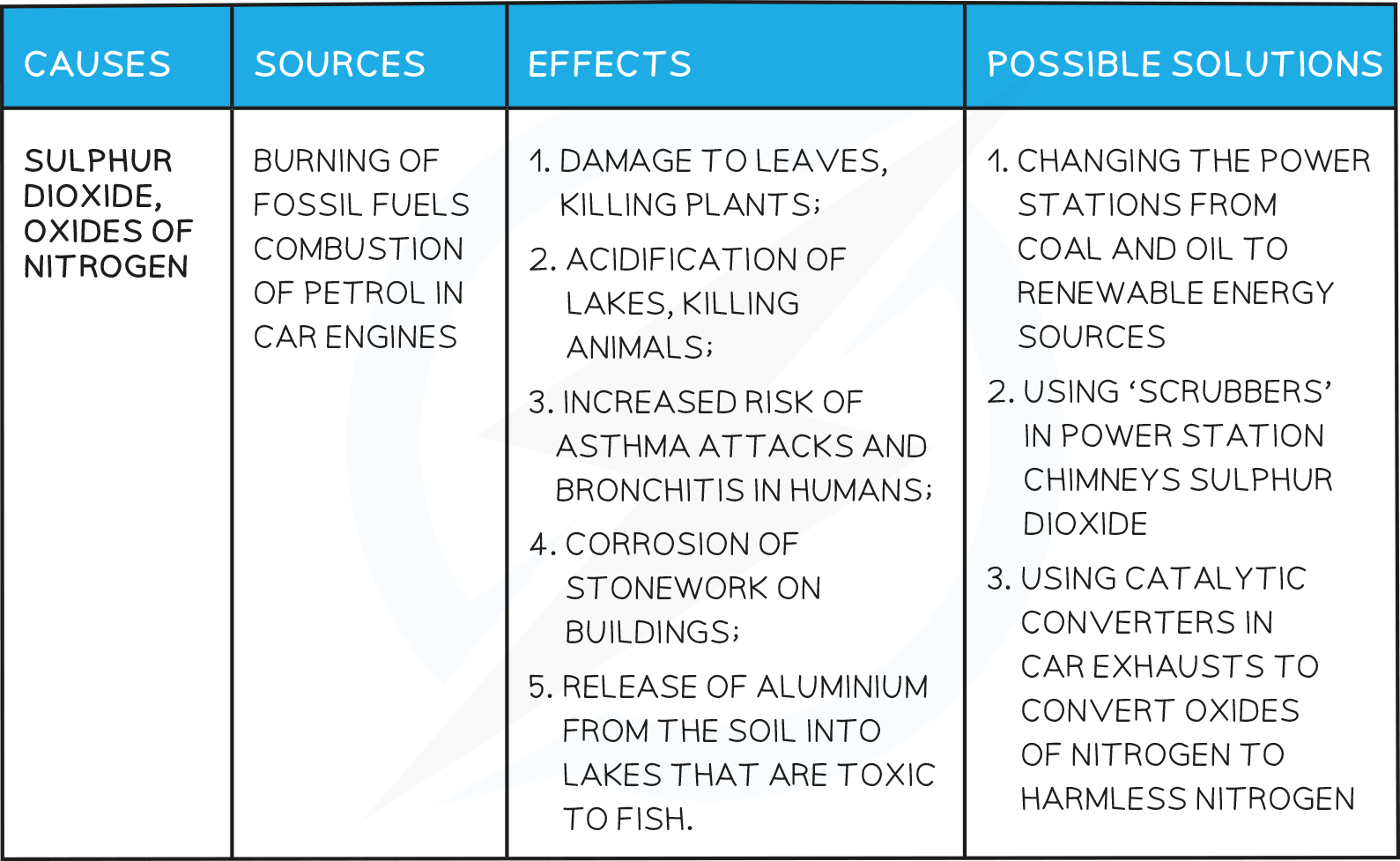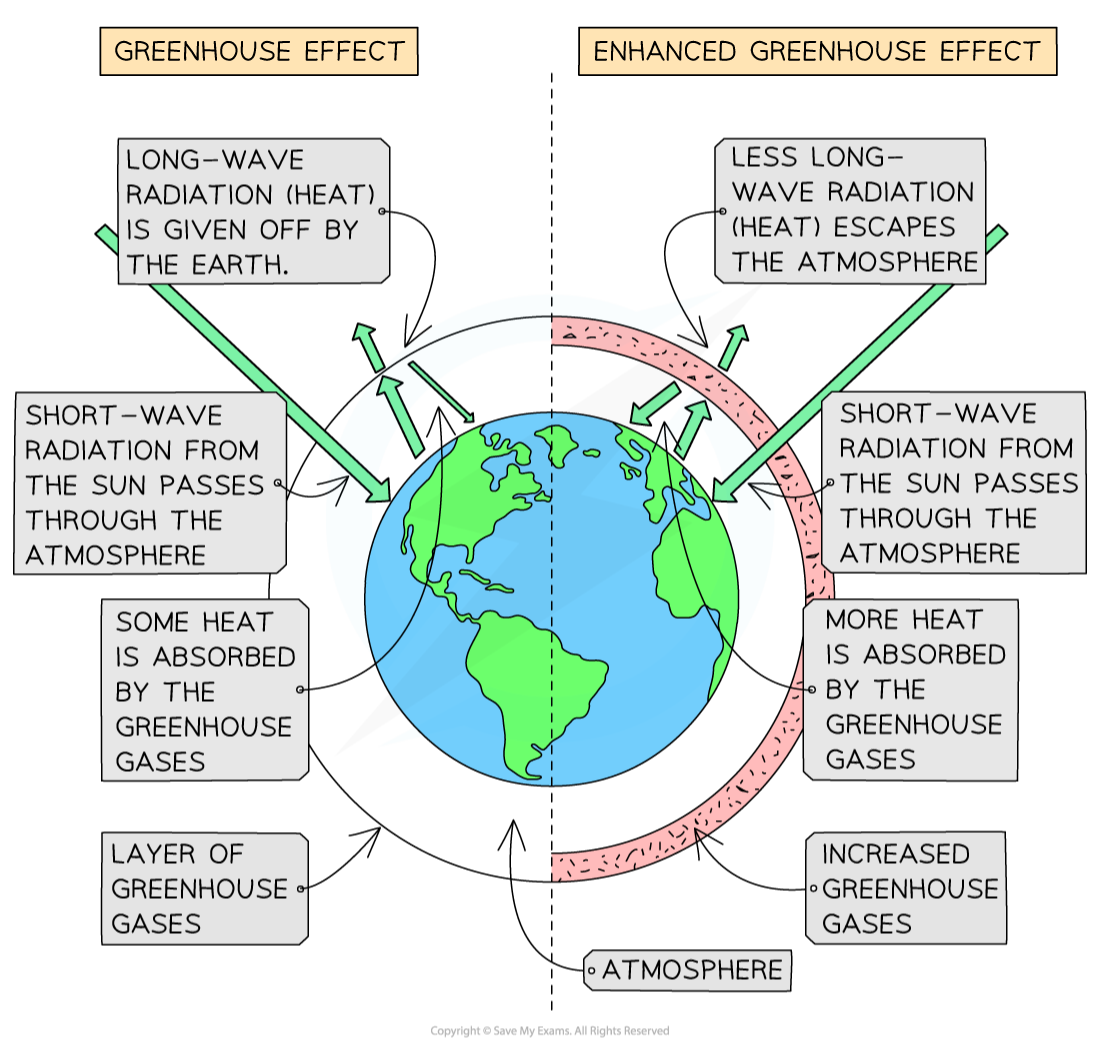- 翰林提供学术活动、国际课程、科研项目一站式留学背景提升服务!
- 400 888 0080
CIE IGCSE Biology: 复习笔记:20.1.4 Other Pollution
CIE IGCSE Biology: 复习笔记:20.1.4 Other Pollution
Plastic Pollution
- Plastics have a large negative impact on both land and water habitats due to their non-biodegradability
- In marine habitats:
- Animals often try to eat plastic or become caught in it, leading to injuries and death
- As the plastic breaks down it can release toxins that affect marine organisms
- Once it has broken down into very small particles, it is commonly ingested by animals and enters the food chain
- On land:
- Plastic is generally disposed of by burying in landfills
- As it breaks down, it releases toxins into the surrounding soil and as such the land is no good for growing crops or grazing animals and can only be used for building on several decades after burial
Air Pollution
Acid Rain
- Combustion of fossil fuels that contain sulfur impurities creates sulfur dioxide
- This is released into the atmosphere where it combines with oxygen to form sulfur trioxide
- Sulfur trioxide dissolves in water droplets in clouds and forms acid rain

Methane and Carbon Dioxide
- Both gases insulate the Earth and act as a 'blanket' around the atmosphere
- Higher levels of both have led to global warming and climate change
- Human activity has increased levels of both gases in the atmosphere
- Burning fossil fuels increases carbon dioxide
- Keeping livestock generates methane gas
- Global warming melts the permafrost in sub-polar regions, which results in even more trapped methane being released into the atmosphere

转载自savemyexams

早鸟钜惠!翰林2025暑期班课上线

最新发布
© 2025. All Rights Reserved. 沪ICP备2023009024号-1








